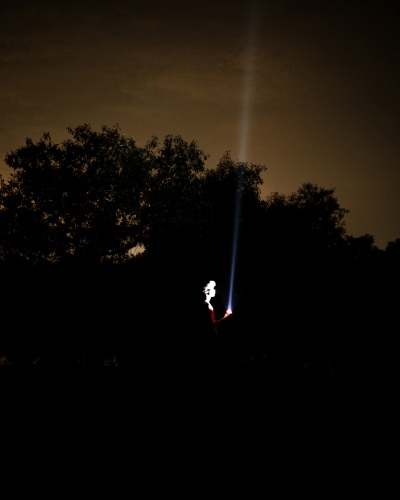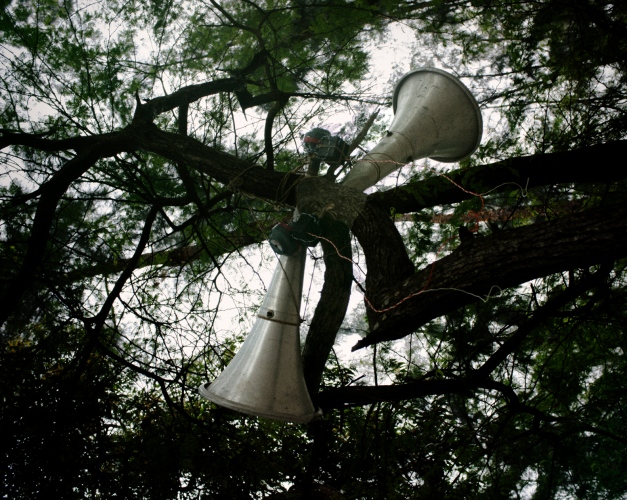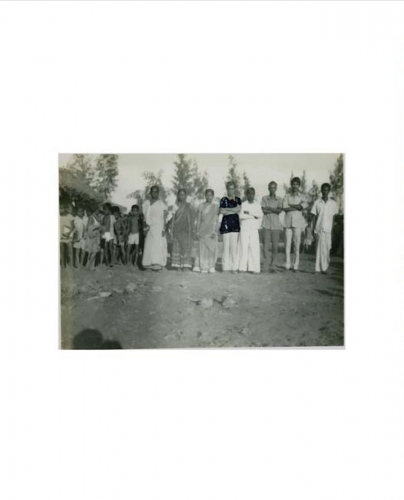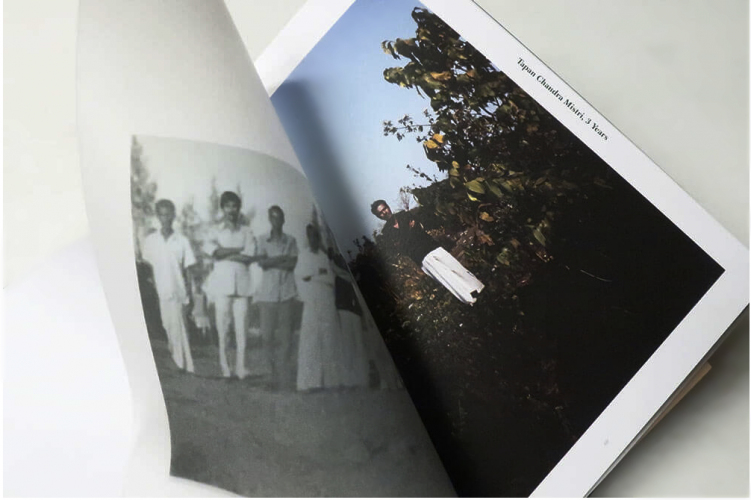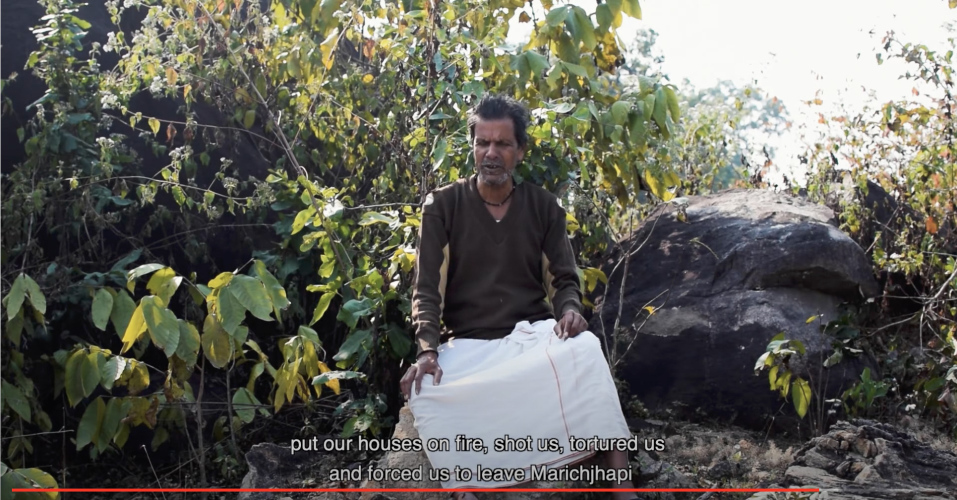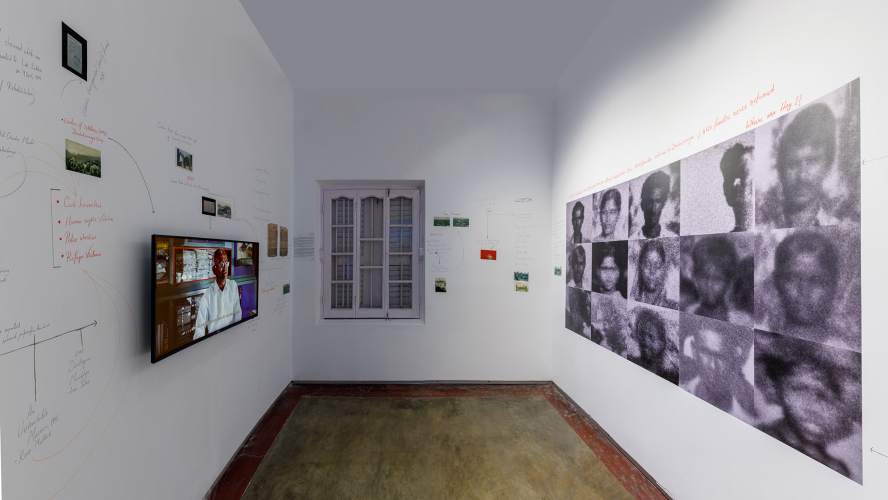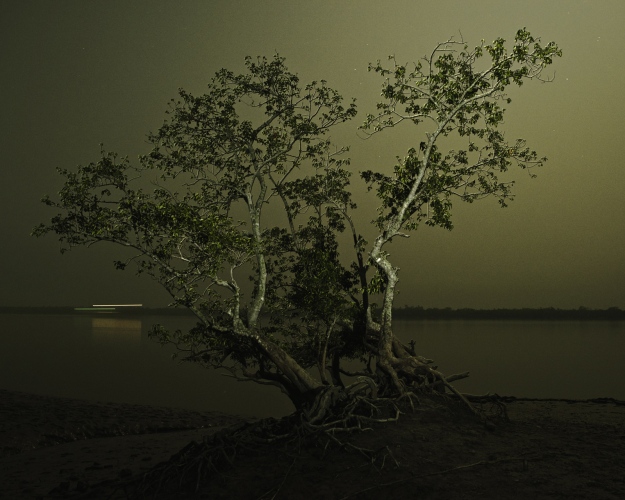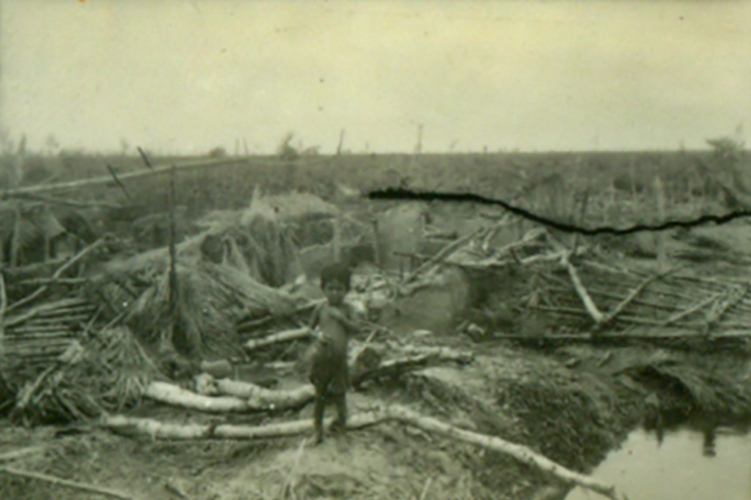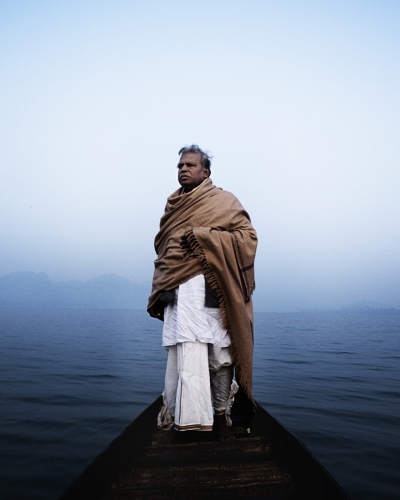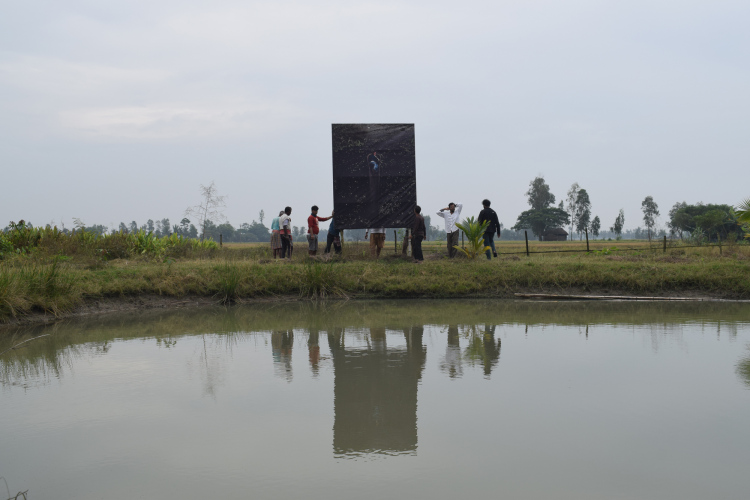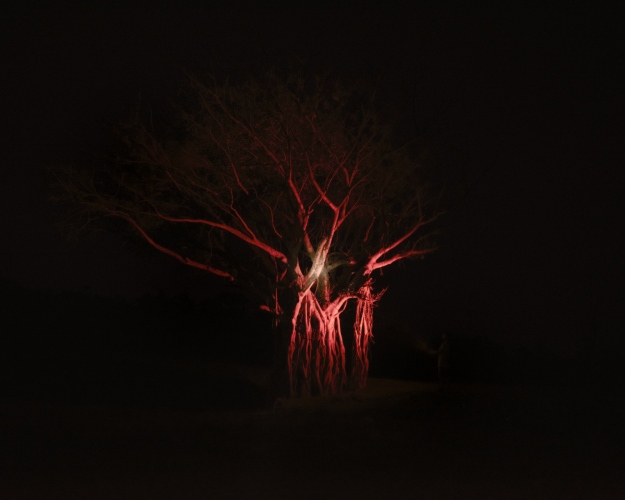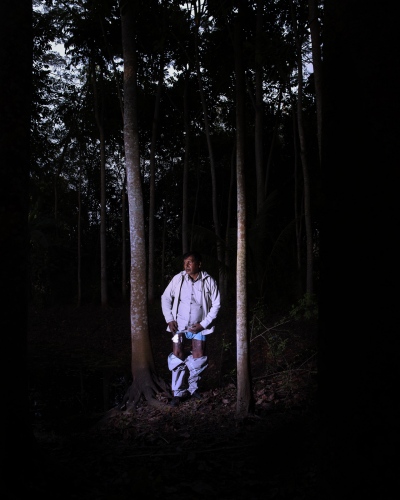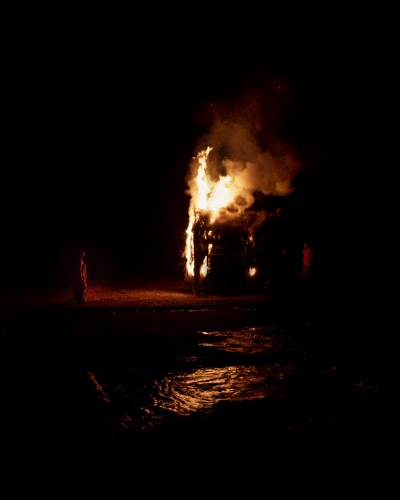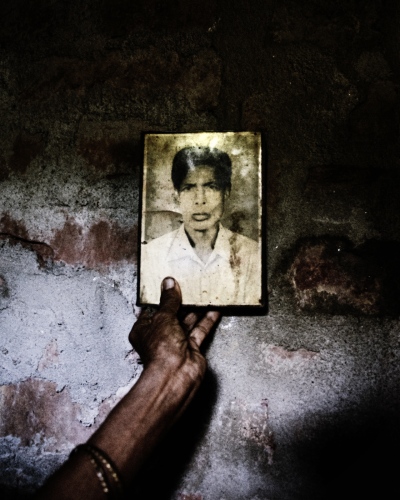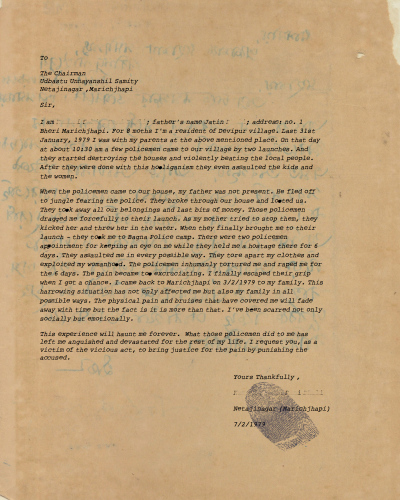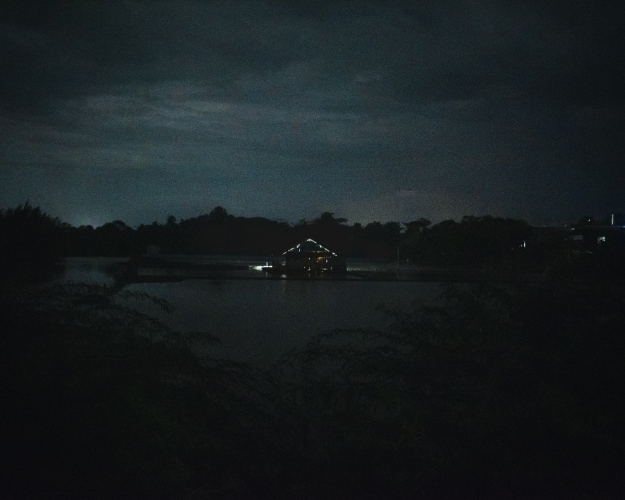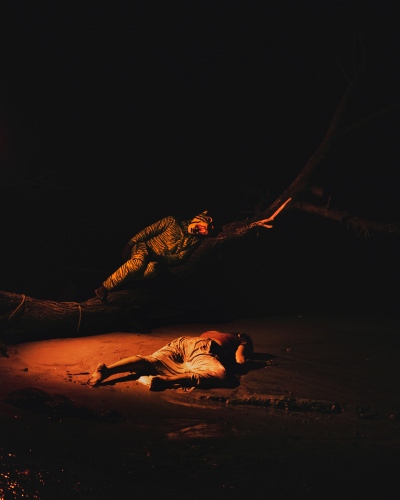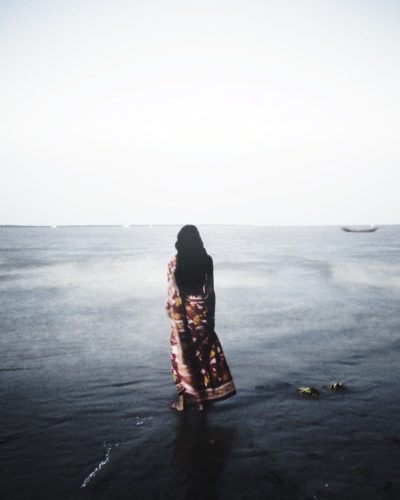-
-
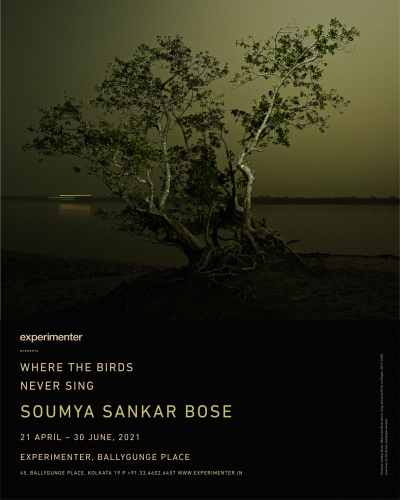
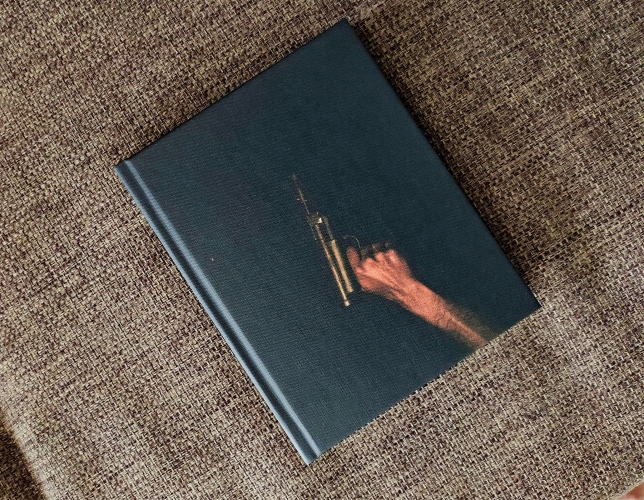
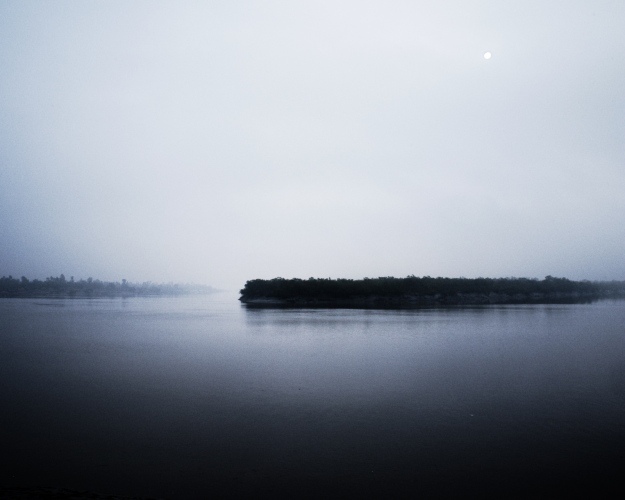
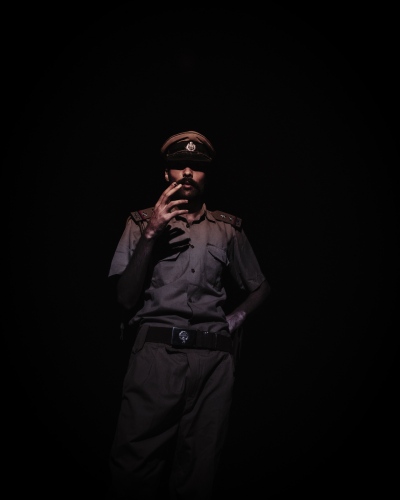
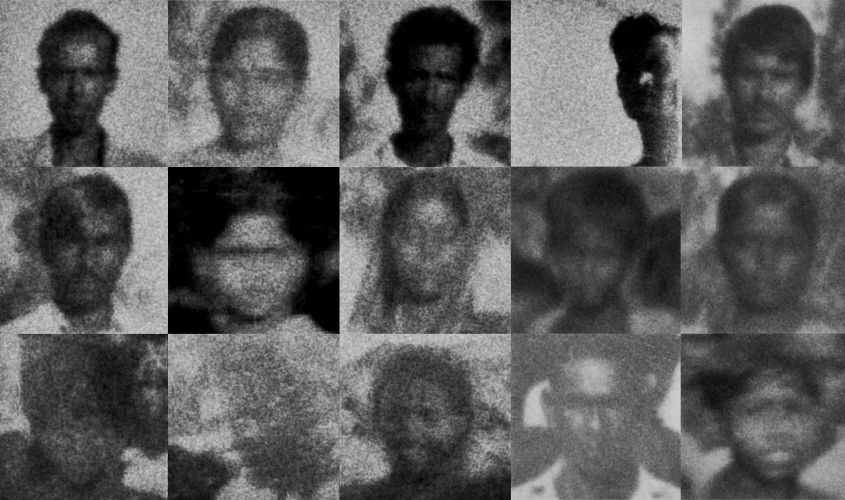
Where the Birds Never Sing (2017- 2020) is a body of work on the Marichjhapi massacre, the forcible eviction in 1979 of Bengali lower caste refugees from Marichjhapi Island in Sundarban, West Bengal, India and the subsequent death of thousands by police gunfire, starvation, and disease.
After the partition of Bengal in 1947 many lower caste Bengalis who fled East Pakistan were aggressively sent to the infertile, inhospitable lands of central India. In 1977, the Left Front government came to power promising to resettle the refugees in West Bengal and they subsequently moved to Marichjhapi Island. But the government reneged on its promise, fearing that an influx of refugees might jeopardise the prospects of the state’s economic recovery, and started to forcibly send them back to central India. Survivors claim that on the morning of 31 January 1979, when some women tried to row their boats to the neighbouring island to fetch drinking water, food grains and medicines, the police rammed their launches into the boats and drowned them. People who took their boats into the river to save the drowning women were fired upon by the police. That night the police and local political goons forcefully entered the island and openly fired upon the refugees.
Thousands of refugees seeking their final home stayed at Marichjhapi for the next year and a half. It is close to impossible to trace the precise number of people who died in the process during the exodus from central Indian camps to the settlement in Marichjhapi, and the eventual police eviction drive sending them back to the camps. But many academics put the total deaths between two thousand and three thousand.
Unfortunately, this inhuman and shocking incident is still very relevant. We need to look around the present scenario in India to realise that matters have not changed at all; that the partition and the massacre were just the beginning in a long line of similar incidents. The current issues concerning the Citizenship Amendment Act (CAA) and The National Register of Citizens (NRC) in India will prove the point. Moreover, caste hierarchy is still an issue at present just as much as it was in the past.Bose, over the last few years, has been researching and re-enacting memories of the survivors in specific locations, as there is almost no written record of the incident. Through the intricate weaving of facts and fiction of existing oral histories of the real survivors, he brings to light several perspectives of the same narrative, forming a cryptic framework of this problematic history that is facing slow erasure from collective memory.
